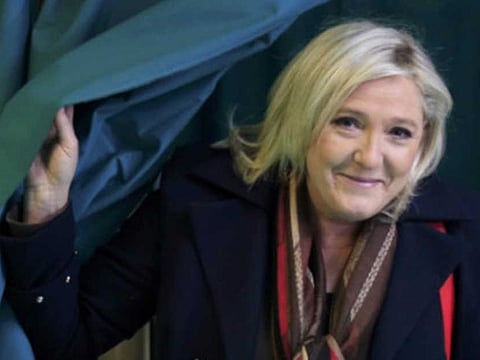Europe’s populist parties are floundering
The latest indication that the European left has passed its high-water mark will likely come in Spain’s December 20 parliamentary elections

It may seem tempting, after the far-right National Front’s success in France’s regional elections week before last, to suppose that anti-establishment populist parties are writing the death notice of Europe’s post-1945 political order. Resist the temptation.
In Greece and Spain, where the leading populist party is or was on the radical left, the evidence points to different conclusions. The ruling parties of Hungary and Poland arouse concern in western Europe for their conservative nationalism, but are actually part of their countries’ political establishments, not insurgent outsiders. Meanwhile, in contrast to France, right-wing populism in Germany and the United Kingdom is an organisational shambles, struggling with shallow cultural roots and gesticulating to little effect on the margins of national life.
For sure, sensitive issues such as the refugee crisis, non-European immigration, terrorism, unemployment and stagnant living standards will continue to supply oxygen for European populist parties, especially on the right. Arguably, however, France is a special case.
Owing to certain unique features of its 20th-century history — above all, the 1954-62 Algerian war and its legacy — French politics is developing in ways distinct from the rest of Europe. This legacy includes Charles de Gaulle’s creation of a powerful presidency in 1958 and the National Front’s foundation in 1972.
Next to these factors is the malaise that has infected France in the early 21st century, partly because of chronic economic ailments. They combine to make the 2017 presidential election, which the National Front’s Marine Le Pen appears well-placed to win in the first round, a supremely important contest in a way that is inapplicable to European countries with different histories and political systems.
The latest indication that the populist European left has passed its high-water mark will come in Spain’s December 20 parliamentary elections. Opinion polls estimate support for Podemos, an upstart radical leftist party, at 15 to 16 per cent, down from 27 to 28 per cent at the start of this year.
Podemos is trailing not only the ruling centre-right Popular Party and the opposition Socialists but also Ciudadanos, a liberal, pro-business party that is another newcomer on the scene.
Spain’s partial economic recovery and the importance of Catalan secessionism as an electoral issue are taking the wind out of Podemos’s sails.
The fortunes of the Greek radical left are evolving differently. Under Alexis Tsipras, the Prime Minister, the ruling Syriza party looks, after just under one year in power, more and more like a movement filling the space on Greece’s political spectrum once occupied by the Pasok socialist party of the Papandreou dynasty.
Syriza has shed its far-left faction, swallowed harsh bailout terms from its creditors and abandoned attempts to set anti-austerity fires alight across the Eurozone. None of this guarantees Greece’s long-term future in Europe’s currency union, but it demonstrates how difficult it is in the European Union (EU) for a radical leftist political project to make headway.
At first sight, populist politics appears in better health in Italy. In a November 30 poll, the anti-establishment Five Star Movement captured 28 per cent support, within breathing distance of the 32 per cent for the centre-left Democratic party led by Matteo Renzi, the Prime Minister. Under electoral law reforms that Renzi passed in May, the Five Star Movement even stands a chance — admittedly, an outside one — of turning Italian politics upside down and winning the next parliamentary elections, due by 2018. For this to happen, the Five Star Movement will need to do well enough to force Renzi’s party into a second round, then attract enough votes from centre-right Italians to win that round.
Although such a victory would be a political earthquake, the party is no longer the eccentric protest movement it was under Beppe Grillo, the comedian-blogger who led it to success in Italy’s 2013 election. Luigi Di Maio, 29, the most prominent of its younger leaders, embodies this new respectability.
Electoral success eludes the United Kingdom Independence party, which lost a by-election in northern England week before last and has one seat in the 650-seat House of Commons, and Alternative fur Deutschland in Germany. As right-leaning electoral forces, both languish in lower leagues than France’s National Front.
— Financial Times



